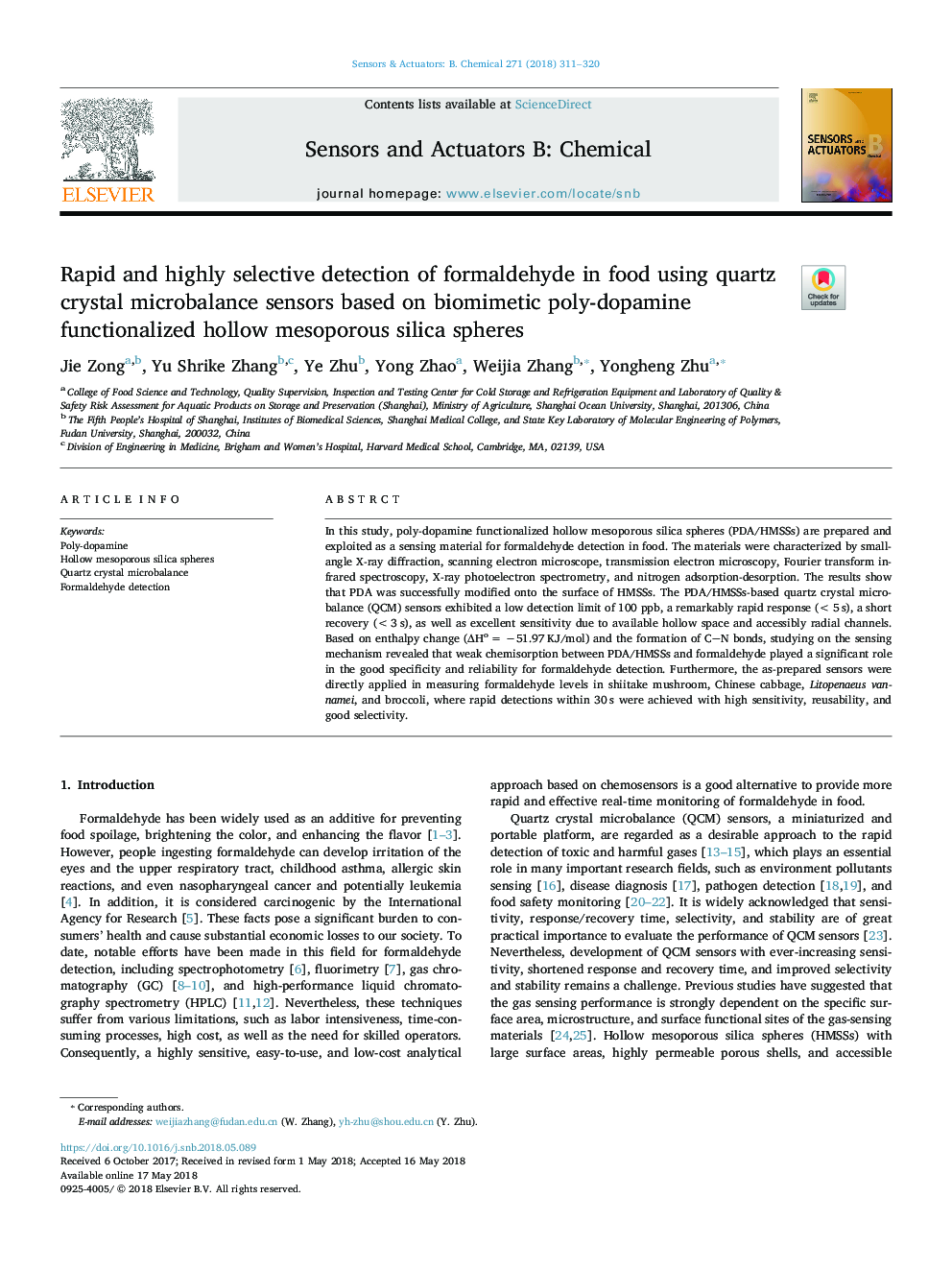| Article ID | Journal | Published Year | Pages | File Type |
|---|---|---|---|---|
| 7138970 | Sensors and Actuators B: Chemical | 2018 | 10 Pages |
Abstract
In this study, poly-dopamine functionalized hollow mesoporous silica spheres (PDA/HMSSs) are prepared and exploited as a sensing material for formaldehyde detection in food. The materials were characterized by small-angle X-ray diffraction, scanning electron microscope, transmission electron microscopy, Fourier transform infrared spectroscopy, X-ray photoelectron spectrometry, and nitrogen adsorption-desorption. The results show that PDA was successfully modified onto the surface of HMSSs. The PDA/HMSSs-based quartz crystal microbalance (QCM) sensors exhibited a low detection limit of 100 ppb, a remarkably rapid response (<5â¯s), a short recovery (<3â¯s), as well as excellent sensitivity due to available hollow space and accessibly radial channels. Based on enthalpy change (ÎHoâ¯=â¯â51.97â¯KJ/mol) and the formation of CN bonds, studying on the sensing mechanism revealed that weak chemisorption between PDA/HMSSs and formaldehyde played a significant role in the good specificity and reliability for formaldehyde detection. Furthermore, the as-prepared sensors were directly applied in measuring formaldehyde levels in shiitake mushroom, Chinese cabbage, Litopenaeus vannamei, and broccoli, where rapid detections within 30â¯s were achieved with high sensitivity, reusability, and good selectivity.
Keywords
Related Topics
Physical Sciences and Engineering
Chemistry
Analytical Chemistry
Authors
Jie Zong, Yu Shrike Zhang, Ye Zhu, Yong Zhao, Weijia Zhang, Yongheng Zhu,
